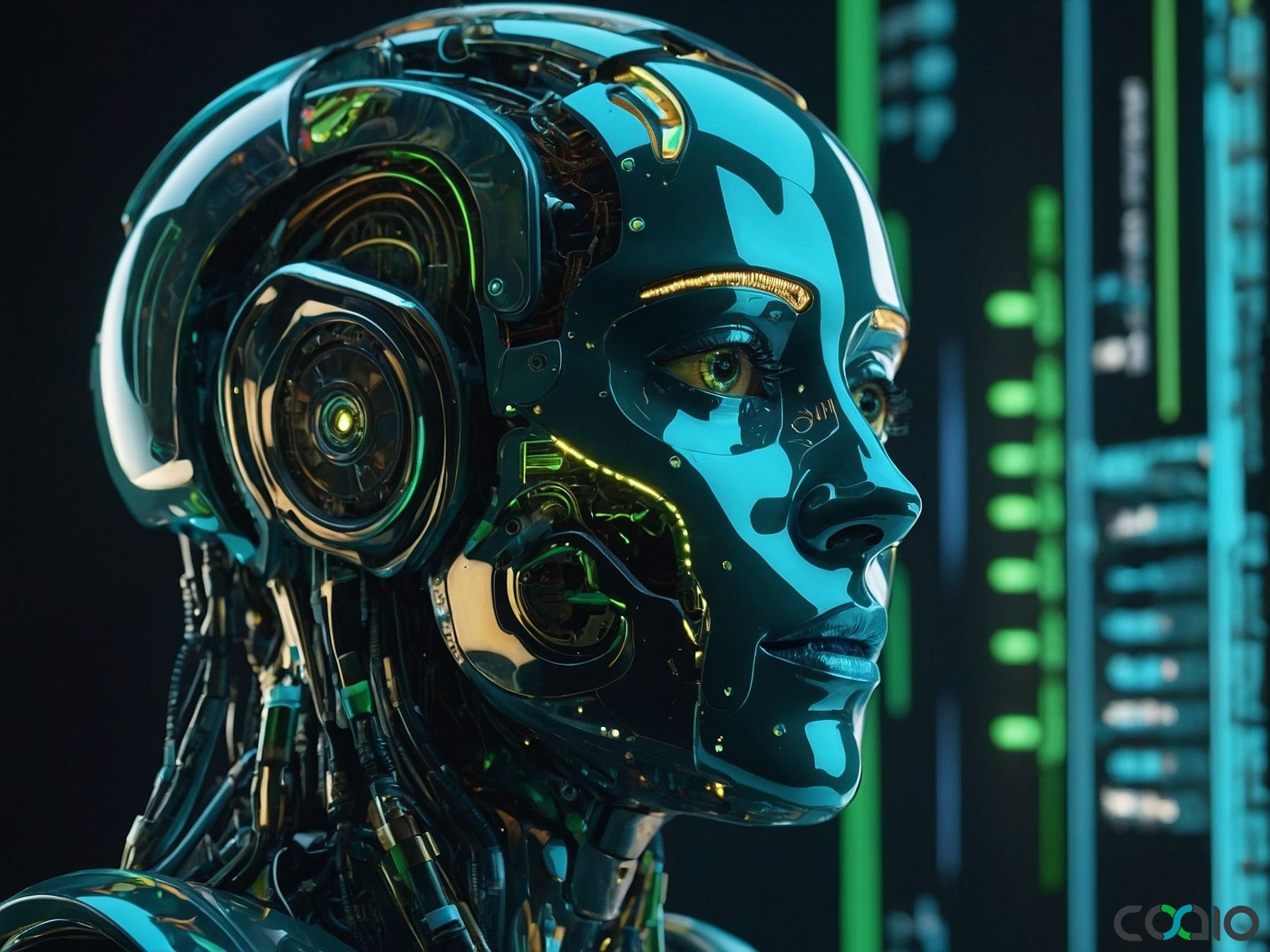
AI Revolutionizing Software Development: Key Insights from Acquisitions, Testing, and Global Workforce Shifts in 2025
In the fast-paced world of technology, software development continues to evolve at breakneck speed, with artificial intelligence (AI) playing a pivotal role in shaping the industry. As of September 20, 2025, recent reports and announcements highlight a mix of innovation, strategic moves, and policy changes that are redefining how companies build and manage software. From AI-driven testing tools to major acquisitions and visa reforms, these developments are not only enhancing efficiency but also raising questions about accessibility and global talent. This article delves into the latest news, exploring their implications for developers, executives, and startups alike.
The Disconnect in AI Adoption for Software Testing
One of the most striking revelations from recent reports is the gap between engineering leaders and executives when it comes to embracing AI in software testing. According to Sauce Labs’ 2025 Software Testing Vibe Check: Agentic Edition report, a significant portion of industry professionals feel that top leadership is out of touch with the practical applications of AI agents Read more. The survey, which included 400 testing executives and engineering leaders surveyed in June 2024, revealed that 61% of respondents believe their leadership doesn’t fully grasp how AI can streamline testing processes.
This disconnect stems from a broader challenge: while AI tools promise to automate repetitive tasks, reduce errors, and accelerate release cycles, many executives view them as experimental rather than essential. For instance, AI agents can now handle complex test scenarios, predict potential bugs, and even generate test cases autonomously. However, the report highlights that only 39% of leaders are actively investing in these technologies, potentially slowing down innovation in an era where speed is crucial.
The implications are far-reaching. Companies that fail to bridge this gap risk falling behind competitors who are integrating AI more effectively. This is particularly relevant for startups and growth-stage firms looking to scale quickly. In this context, outsourcing software development can provide a competitive edge by leveraging specialized expertise without the internal hurdles. For example, teams focused on AI integration can help businesses adopt these tools more seamlessly, ensuring that testing processes are not just efficient but also aligned with business goals.
Expanding AI Coding Platforms: Zencoder’s Game-Changing Announcement
On the development front, Zencoder’s recent expansion of its Zen Platform marks a monumental step toward democratizing AI in coding. The platform now unifies popular AI coding tools like OpenAI Codex, Anthropic’s Claude Code, Gemini CLI, and Zencoder’s own Zen CLI, making them accessible directly within modern integrated development environments (IDEs) such as Visual Studio Code and JetBrains Read more. This move is poised to reach nearly a billion users, integrating AI seamlessly into everyday coding workflows.
Zencoder’s announcement underscores the growing demand for AI-assisted development, where developers can generate code snippets, debug issues, and even suggest optimizations in real-time. With AI handling mundane tasks, human developers can focus on creative problem-solving and innovation. This is especially beneficial in a world where software projects are becoming increasingly complex, involving multiple languages and frameworks.
However, this integration also brings challenges, such as ensuring the accuracy of AI-generated code and addressing ethical concerns like data privacy. As AI tools become more prevalent, the need for robust project management and risk identification becomes paramount. Businesses can mitigate these risks by partnering with reliable development services that offer comprehensive solutions, from initial design to final deployment, ensuring that AI-enhanced projects deliver high-quality results without compromising security.
Strategic Acquisitions in the Tech Landscape: Atlassian’s Bold Move
Atlassian, a powerhouse in team collaboration and productivity software, has made headlines with its definitive agreement to acquire DX, a leader in engineering intelligence Read more. This acquisition is set to empower enterprises by providing deeper insights into how AI investments are impacting engineering teams, helping them accelerate workflows and improve overall productivity.
The deal highlights a trend where companies are consolidating resources to better leverage AI for engineering intelligence. DX’s expertise in analyzing data from development processes will complement Atlassian’s existing tools, such as Jira and Trello, allowing teams to track AI’s role in real-time. For instance, organizations can now measure how AI-driven features are reducing development time or enhancing code quality, which is crucial for maintaining a competitive edge.
This acquisition reflects the broader industry shift toward data-driven decision-making. As AI becomes integral to software development, companies must navigate the complexities of integration, including compatibility with existing systems and training for staff. Such strategic moves not only streamline operations but also open doors for innovation, potentially leading to new products and services that redefine collaboration in tech.
The Ripple Effects of H-1B Visa Reforms on Software Development
Beyond the realm of tools and acquisitions, policy changes are exerting a profound influence on the software development workforce. President Trump’s recent proclamation imposing a $100,000 fee for new H-1B visa applications—up from the previous $215—has sparked intense debate Read more. This significant hike targets a program that has been instrumental in bringing global talent to Silicon Valley, including luminaries like Elon Musk and the founders of Instagram.
The fee increase could deter companies from hiring skilled foreign workers, potentially leading to talent shortages in key areas like AI and software engineering. For U.S. firms, this means higher costs for accessing international expertise, which might push them toward alternative strategies such as outsourcing development to regions with abundant skilled labor. This policy shift underscores the interconnectedness of global tech ecosystems and the challenges of balancing domestic priorities with innovation needs.
While the immediate impact may be felt in hiring practices, it also highlights the importance of building resilient development teams. Companies can adapt by exploring cost-effective outsourcing options that maintain high standards without the bureaucratic hurdles of visa processes.
Starship’s Flights and Their Indirect Ties to Tech Innovation
Although not directly related to software development, SpaceX’s Starship program adds an intriguing layer to the tech narrative. With plans to launch over Florida and return over Mexico, avoiding major population centers, Starship’s advancements could influence software development through enhanced satellite communications and data processing Read more. This development might lead to new opportunities in software for aerospace applications, such as autonomous flight systems and real-time analytics.
As we wrap up this exploration of software development’s latest trends, it’s inspiring to think about how these innovations can empower visionaries to turn ideas into reality. Imagine a world where cutting-edge AI tools and strategic partnerships allow founders to focus purely on their passions, sidestepping the pitfalls of complex implementation. This is the essence of true innovation—enabling creators to build without barriers, much like how dedicated teams can handle the heavy lifting of software creation, letting ideas shine through with efficiency and minimal risk.
About Coaio
Coaio Limited is a Hong Kong-based tech firm that specializes in outsourcing software development and building expert teams in Vietnam. We offer comprehensive services including business analysis, competitor research, risk identification, design, development, and project management, delivering cost-effective, high-quality software solutions for startups and growth-stage companies, particularly those in the US and Hong Kong markets. By partnering with us, you can access user-friendly designs and efficient tech management, allowing you to concentrate on your core vision while we handle the complexities, ultimately helping you succeed with less risk and more innovation.
 English
English
 Français
Français
 Español
Español
 廣東話
廣東話
 中文
中文
 日本語
日本語
 한국어
한국어
 العربية
العربية
 Deutsch
Deutsch

